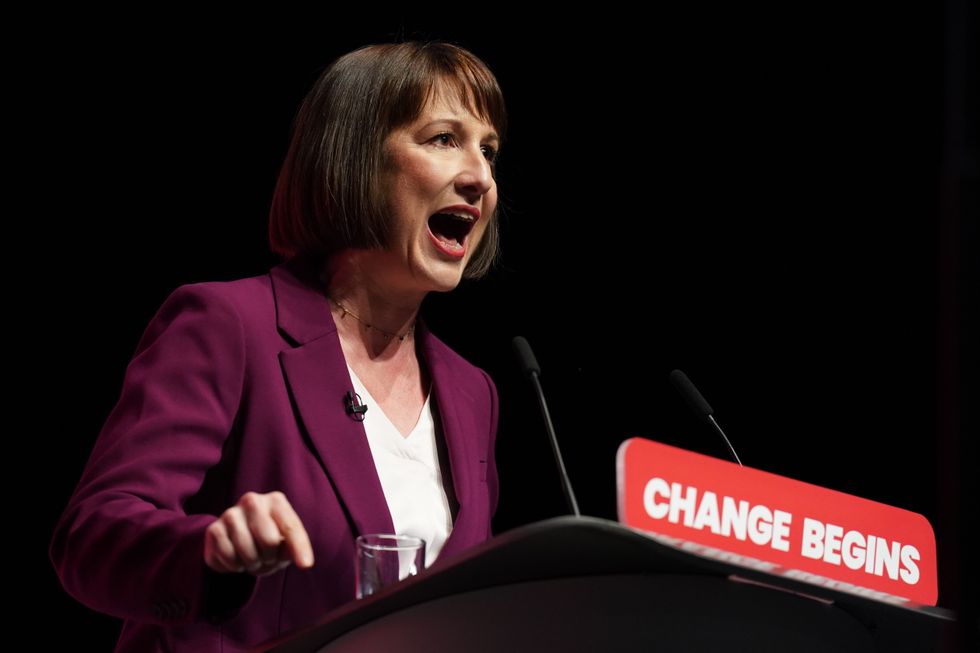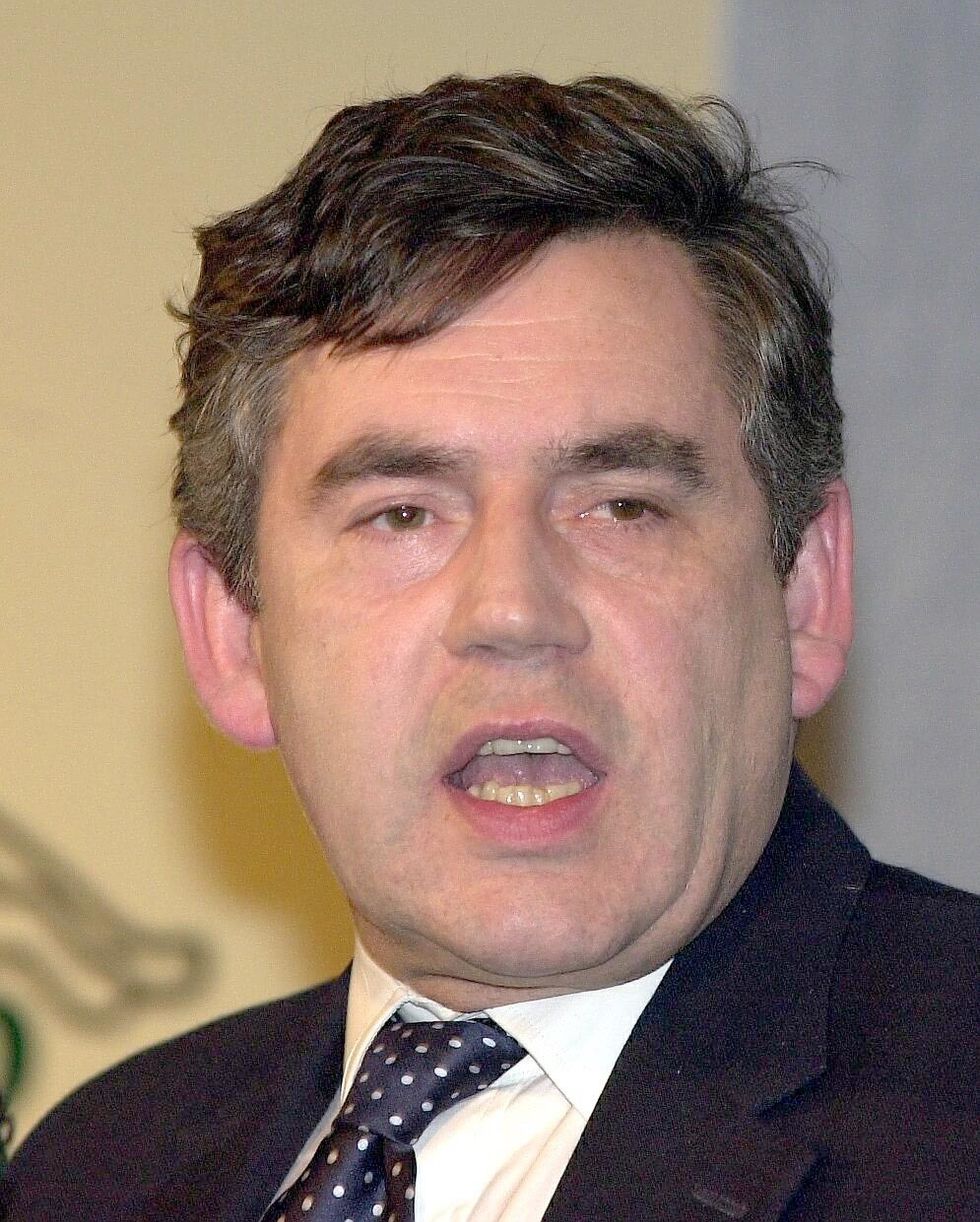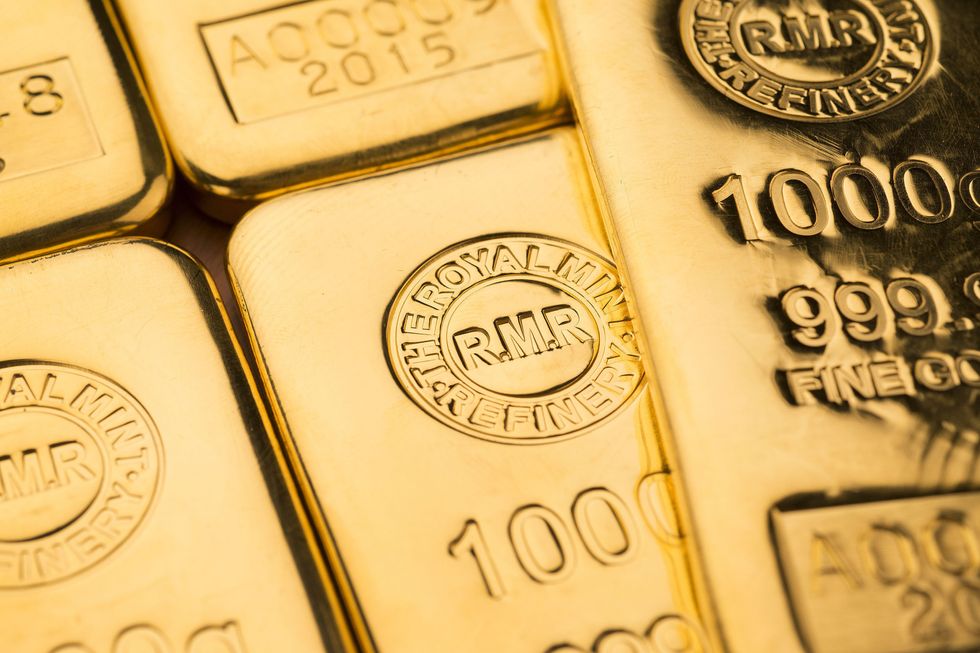Labour’s mass sale of gold at the turn of the millennium could have covered the entirety of the £22billion “black hole” in public finances had it been sold today instead, GB News can reveal.
From 1999 to 2002, the Labour Government, with Gordon Brown as Chancellor of the Exchequer, sold off just shy of 400 tonnes of Britain’s gold in a bid to diversify the UK’s assets.
Brown sold around half of Britain’s gold reserves for a total of $3.5billion (approx £2.14billion based on the exchange rate in 1999) but had it been sold today, it could have paid for the “black hole” in the UK’s public finances with around £5billion in headroom.
Speaking to GB News about what critics dubbed at the time ‘Brown’s Bottom’, former Chancellor Kwasi Kwarteng said: “The sale of the gold at rock bottom prices was a huge blunder.
“We should never have sold it and if we hadn’t we should still keep it regardless.”
Reform UK leader Nigel Farage echoed Kwarteng’s comments also branding the sale “disastrous”.
 Reeves has said the Labour Government inherited a £22bn “black hole” from its predecessorsPA
Reeves has said the Labour Government inherited a £22bn “black hole” from its predecessorsPA At the time gold was seen by the Government as too volatile an asset. When the auction of the gold was announced on May 7, 1999, the price of gold stood at its lowest level in 20 years, standing at just $282.40 per ounce (approx. £172.86).
However following the sale, the price of gold increased at an average of 8 per cent annually in the 25 years from 1999-2024.
At time of writing, the price of gold has ballooned almost 10 times to £2,171.69 per troy ounce.
With 32,150.7 troy ounces in a metric tonne, this equates to about £69.79million per tonne in today’s currency.
Selling 395 tonnes of gold today would generate approximately £27.57billion.
With the headroom generated after paying off the financial black hole, Reeves could have given each British household a £196 tax cut.
However, this total does not take inflation into account which has eroded the spending power of the pound.
THE BEST OF GB NEWS:
- MAPPED: The overwhelming number of Labour areas rocked by grooming gangs REVEALED as party rejects inquiry
- Why did Starmer and his top brass abstain from voting on grooming gangs? Inside ‘calculated’ move
- Why Rachel Reeves is on the brink of exit and with any luck Starmer will follow – Kelvin MacKenzie
Conservative Shadow Chancellor Mel Stride told GB News: “Labour Governments always end up squandering taxpayers’ money and this one is no different.
“Sadly even the gold Gordon Brown sold off wouldn’t be enough to touch the sides of the black hole Rachel Reeves has created – in fact it would not even cover the extra interest spending on the debt she is racking up.
“We are all paying the price for Labour’s incompetence.”

From 1999 to 2002, Gordon Brown sold around half of Britain’s gold
PA
However defending the sale, IEA Economics Fellow Julian Jessop told GB News that “hindsight is a wonderful thing”, saying: “Gordon Brown’s decision made some sense at the time because gold had performed poorly as an investment for many years.
“The launch of the euro also provided an opportunity to diversify the UK’s reserves into a new currency which was widely expected to rival the US dollar.
“Moreover, the proceeds from the gold sales were reinvested in assets that paid interest, generating some additional income.
“This has only offset some of the capital gains that the UK might have made if still holding all the gold, but the Government should not really be in the business of speculating on commodity markets.”
Continuing to explain why the sale would not be a benefit to Britain’s economy now, Jessop added: “Finally, this is largely irrelevant to the current mess anyway, for two reasons.
“First, while these sales would raise cash and reduce the amount of bonds that needed to be sold, this would be a one-off.
“The ‘black holes’ in the public finances are not just a single-year problem.
“Second, and more importantly, the disposal of an asset would not actually help to meet the Government’s fiscal targets, which require day-to-day spending to be covered by tax revenues, and net debt to be falling.
“Overall, selling gold would not be a long-term solution to Britain’s fiscal crisis.”

Gold bullion stamped by the Royal Mint
PA
The comments come as the Treasury was forced to intervene to stabilise financial markets after Government borrowing costs surged to their highest level since the 2008 financial crisis.
The pound tumbled to a nine-month low against the dollar on Wednesday as UK 10-year borrowing costs climbed above 4.8 per cent.
A Treasury spokesman said: “No one should be under any doubt that meeting the fiscal rules is non-negotiable and the Government will have an iron grip on the public finances.
“UK debt is the second lowest in the G7 and only the [Office for Budget Responsibility’s] forecast can accurately predict how much headroom the government has – anything else is pure speculation.
“Kick-starting economic growth is the number one mission of this Government as we deliver on our Plan for Change.
“Over the coming weeks and months, the Chancellor will leave no stone unturned in her determination to deliver economic growth and fight for working people.”
The intervention came as analysts warned the recent market movements could wipe out the £9.9billion fiscal headroom Reeves had secured in October’s Budget and the pound fell to its lowest level against the dollar since April 2024, trading at $1.232.
Brad Bechtel, global head of foreign exchange at Jefferies, warned the UK was experiencing a “micro version” of the 2022 bond market meltdown seen during Liz Truss’s mini-Budget.
“UK gilts continue to melt down… we are spilling further and further into fiscal emergency territory,” he said.
Despite Brown selling off around half of Britain’s gold reserves, the UK still holds around 310 tonnes of the precious metal.
GB News has contacted Labour and the Treasury for comment.